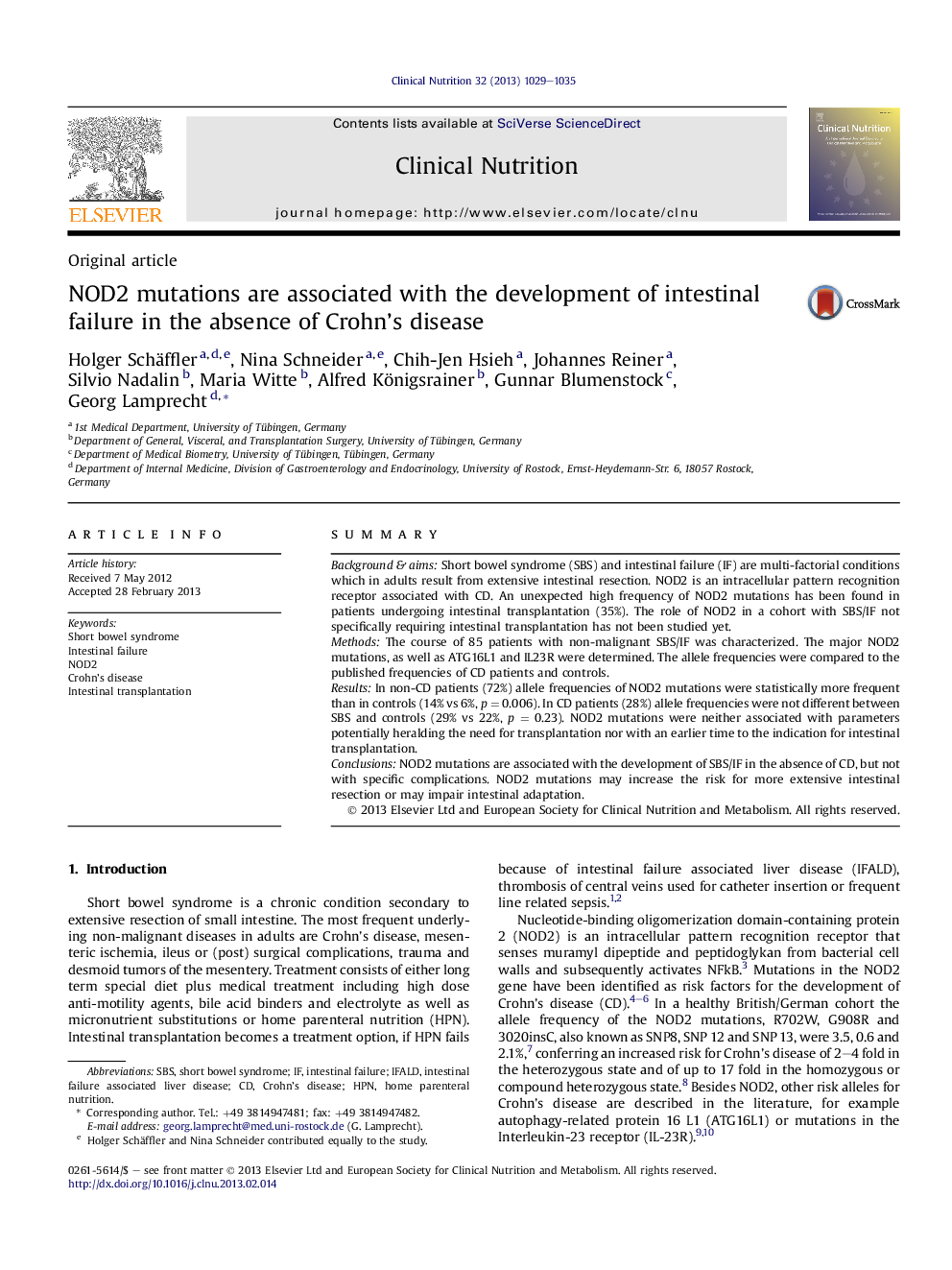| Article ID | Journal | Published Year | Pages | File Type |
|---|---|---|---|---|
| 5872356 | Clinical Nutrition | 2013 | 7 Pages |
SummaryBackground & aimsShort bowel syndrome (SBS) and intestinal failure (IF) are multi-factorial conditions which in adults result from extensive intestinal resection. NOD2 is an intracellular pattern recognition receptor associated with CD. An unexpected high frequency of NOD2 mutations has been found in patients undergoing intestinal transplantation (35%). The role of NOD2 in a cohort with SBS/IF not specifically requiring intestinal transplantation has not been studied yet.MethodsThe course of 85 patients with non-malignant SBS/IF was characterized. The major NOD2 mutations, as well as ATG16L1 and IL23R were determined. The allele frequencies were compared to the published frequencies of CD patients and controls.ResultsIn non-CD patients (72%) allele frequencies of NOD2 mutations were statistically more frequent than in controls (14% vs 6%, p = 0.006). In CD patients (28%) allele frequencies were not different between SBS and controls (29% vs 22%, p = 0.23). NOD2 mutations were neither associated with parameters potentially heralding the need for transplantation nor with an earlier time to the indication for intestinal transplantation.ConclusionsNOD2 mutations are associated with the development of SBS/IF in the absence of CD, but not with specific complications. NOD2 mutations may increase the risk for more extensive intestinal resection or may impair intestinal adaptation.
